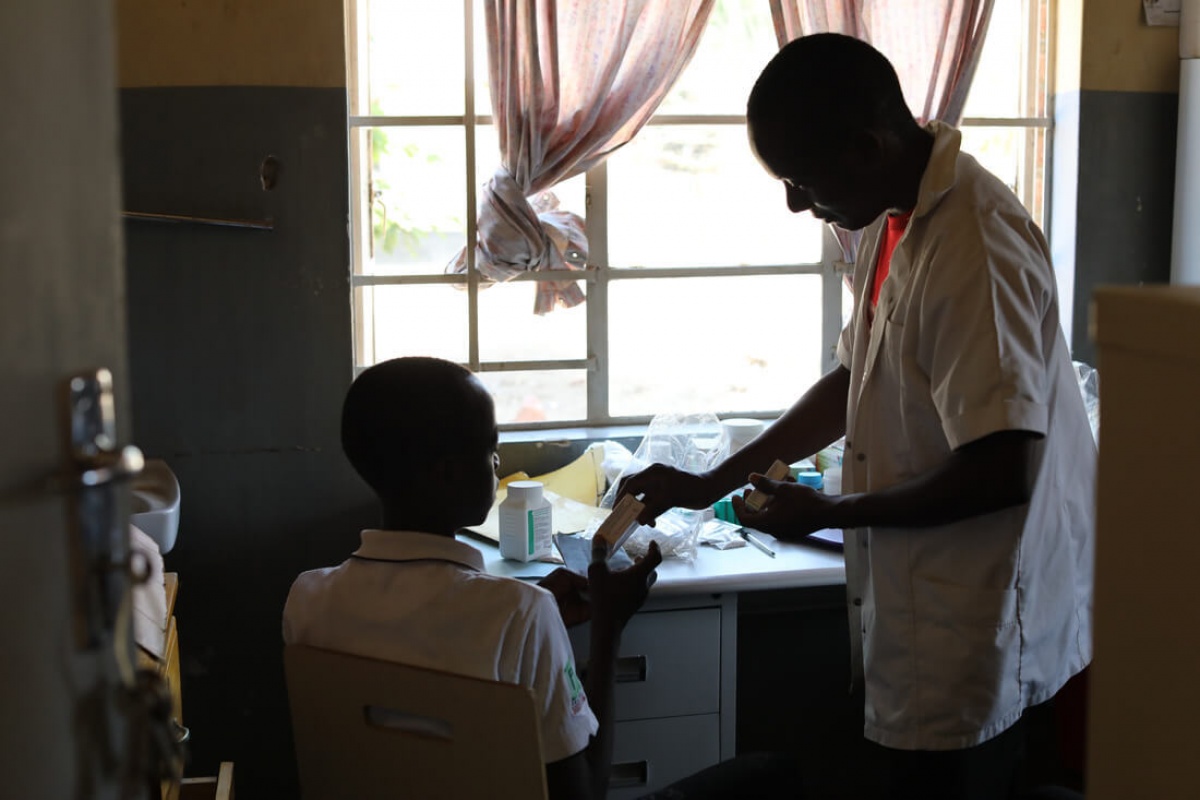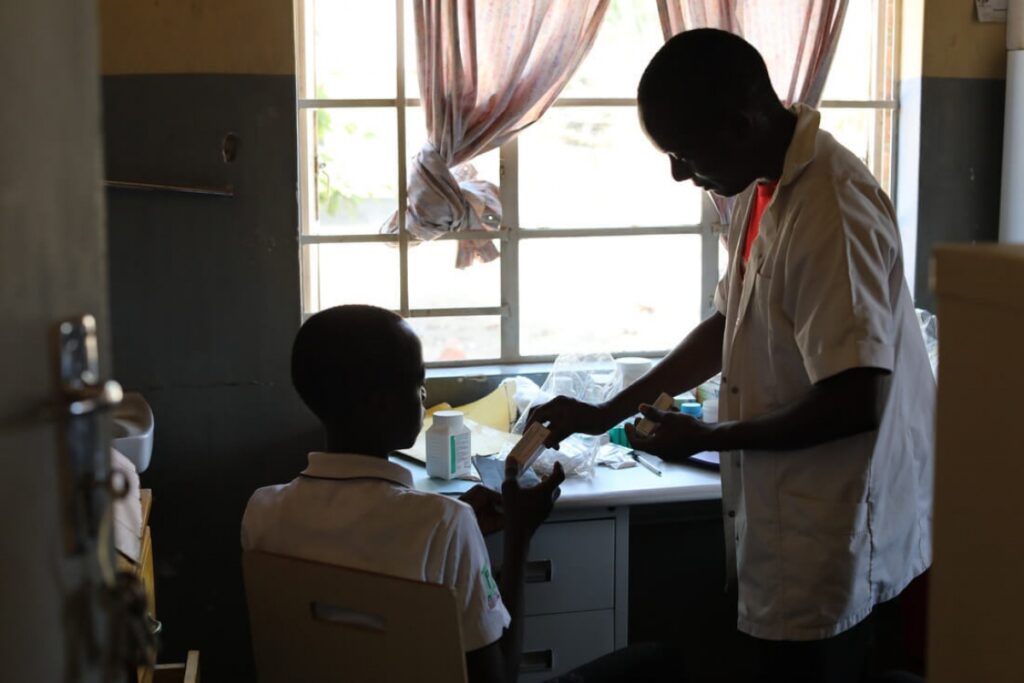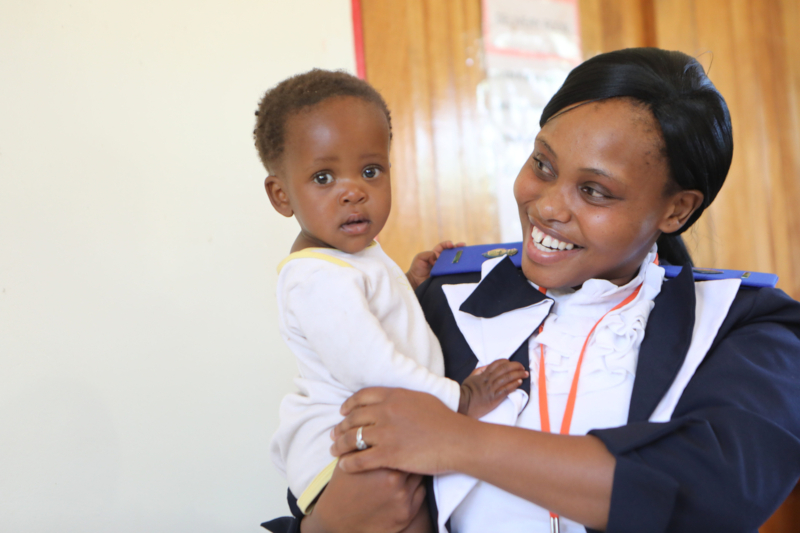World Diabetes Day Highlights Impacts of PIH Nurses

This year’s global recognition of diabetes care has a theme – “Nurses Make the Difference” – that rings incredibly true for PIH’s growing non-communicable disease programs

Gedeon Ngoga said several global factors—the COVID-19 pandemic, a new report on health inequities, and World Diabetes Day, which is Saturday—all have a common thread: the importance of nurses.
“Nurses make a difference in so many facets of the work,” Ngoga said. “They make up the vast majority of the health care workforce, especially in low-resource settings, and for that reason they are counted on for much of care delivery. Ninety percent of care delivery is provided by nurses.”
Ngoga added that nurses make it possible to integrate and decentralize care delivery for NCDs such as diabetes, helping PIH serve patients in rural areas where specialists may not be readily available.
Ngoga is Partners In Health’s cross-site nurse educator for non-communicable diseases, or NCDs. His comment aligns with this year’s World Diabetes Day theme, “Nurses Make the Difference.” The theme rings incredibly true for PIH’s growing NCD programs, including diabetes. PIH nurses around the world are ensuring diabetes patients receive sustained, comprehensive care—including in community settings—from diagnosis to clinical treatment and connection to specialists.
That care particularly focuses on type 1 diabetes, which predominantly affects younger patients in low-income settings and requires advanced skills in specific areas—such as insulin management—to prevent life-threatening consequences.
Ngoga said this year, PIH’s more than 1,200 nursing and midwifery staff—nearly 90 percent of whom are women—also have been supporting COVID-19 responses while maintaining routine services and chronic care across PIH’s clinical areas, from maternal and child health to malnutrition, malaria, HIV, and more.
“Nursing sits at the crux and at the margins of many intersecting operations, and vast clinical areas,” said Julia Vance, a cross-site nursing coordinator for PIH. “They can pull together many different tendrils of care, and also are actors in changing people’s relationship to health and health behaviors.”
Melissa Ojemeni said that breadth of influence—and the level of skill and autonomy required of nurses—often is overlooked. Ojemeni is program manager for PIH’s Global Nurse Executive Fellowship, a yearlong program that just launched its second cohort. This year’s 10 nurse fellows come from six PIH-supported countries: Haiti, Sierra Leone, Liberia, Rwanda, Lesotho, and Malawi.
The fellowship is expanding the leadership capacity of nurse executives, building their skills and providing mentorship for leadership roles. It’s also changing perceptions, Ojemeni said, that nursing is only about administering medicine or handling mundane tasks.
“We’re often not recognized, we’re often not at those tables that are making decisions, but slowly and surely that is changing,” she said.
PIH is helping lead that effort. In the World Health Organization’s Year of the Nurse and Midwife, and with Dr. Sheila Davis, RN, as CEO, PIH’s global advocacy for nurse leadership is growing.

Equitable, Integrated Care
A recently published report demonstrates the importance of nursing in delivering equitable care for NCD patients in settings of poverty.
“The Lancet NCDI Poverty Commission: Bridging a Gap in Universal Health Coverage for the Poorest Billion” was published in September. The report is the result of a massive, multi-year collaboration by NCD experts around the world, including many PIHers. The first-of-its-kind analysis examines NCDs and injuries, which deeply affect millions of people in the world’s poorest settings and cumulatively represent one of the planet’s biggest and most glaring health disparities.
Every year, NCDs and injuries cause 560,000 avoidable deaths for people who are younger than 40 and among the world’s poorest billion. That total is greater than the avoidable deaths caused by HIV and maternal causes combined, for that same population.
Pandemic safety measures and social distancing did not stop work on the Lancet report, which includes country-level findings and recommendations for more equitable NCD interventions and policies. The report was co-chaired by Dr. Gene Bukhman, PIH’s senior health and policy advisor for NCDs. Its commissioners included Dr. Agnes Binagwaho, vice-chancellor of the University of Global Health Equity in northern Rwanda; Dr. Gary Gottlieb, former PIH CEO; and Chelsea Clinton, global health advocate, PIH Trustee, and vice chair of the Clinton Foundation.
One of the report’s key recommendations is investing in integrated NCD care delivery, including a nurse-led model for severe, chronic NCDs such as type 1 diabetes. Through the leadership of nurses, clinical officers, and other mid-level care providers who specialize in NCDs, patients can receive advanced services at district hospitals that are much closer to where the care is needed most.
Innovations in nurse-led NCD care in Rwanda, for example, are informing strategy and training models for NCD services across the African continent and resulting in new partnerships with WHO-AFRO and other regional partners.
An audience of hundreds viewed a virtual launch event for the landmark Lancet report. PIH’s NCD teams plan to build on the momentum to mobilize greater funding and political commitment for NCDs of poverty.
All of that work is built upon the foundation of nursing care.
“At every segment, every step of the health care system, really the person that’s overseeing things in one regard to another is a nurse,” Ojemeni said. “And I think that’s something that resonates not only in the developing world, but also in the U.S.”
Ojemeni said PIH’s ongoing involvement and advocacy with the WHO will be crucial to elevating the voice of nurses, who number more than 20 million around the world.
“Imagine what that capacity and power could do on a global level to promote change and promote what’s best for our patients,” she said.
Article originally published on pih.org



